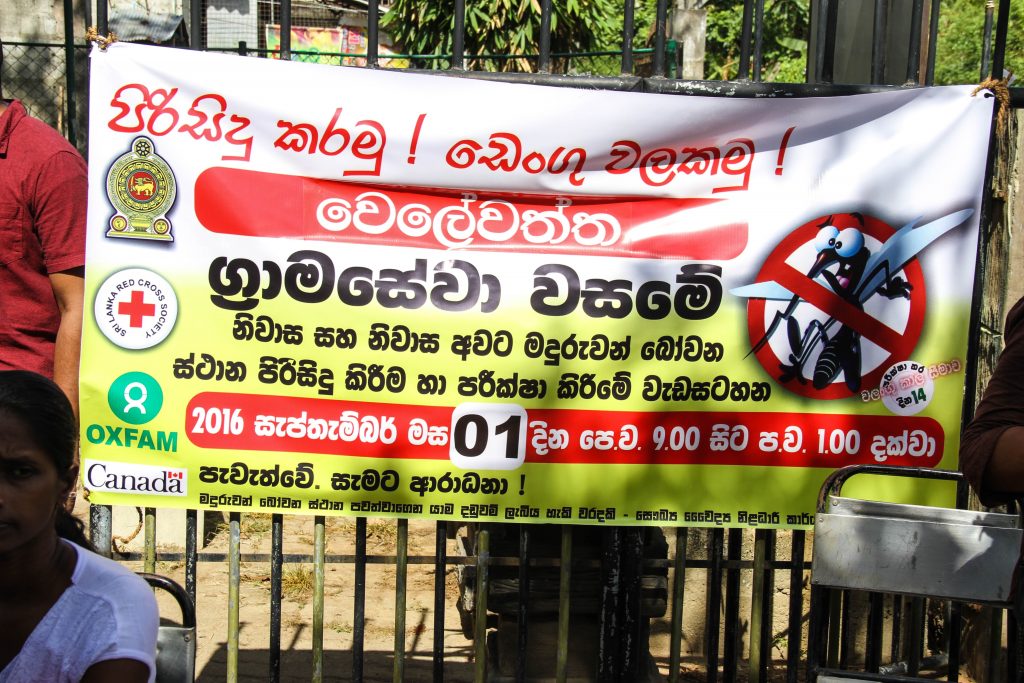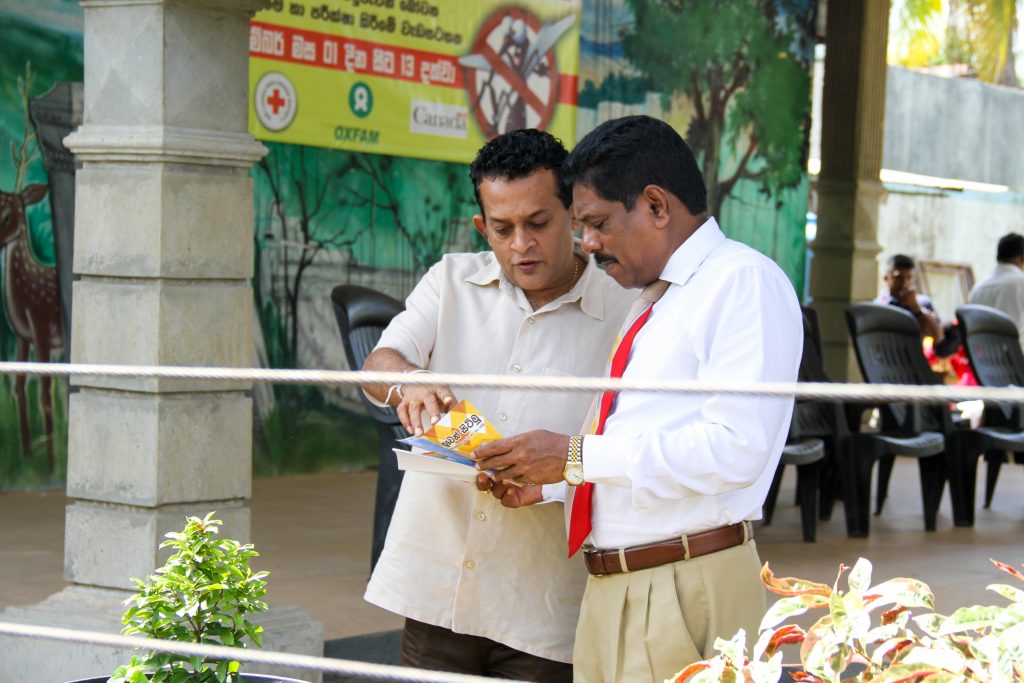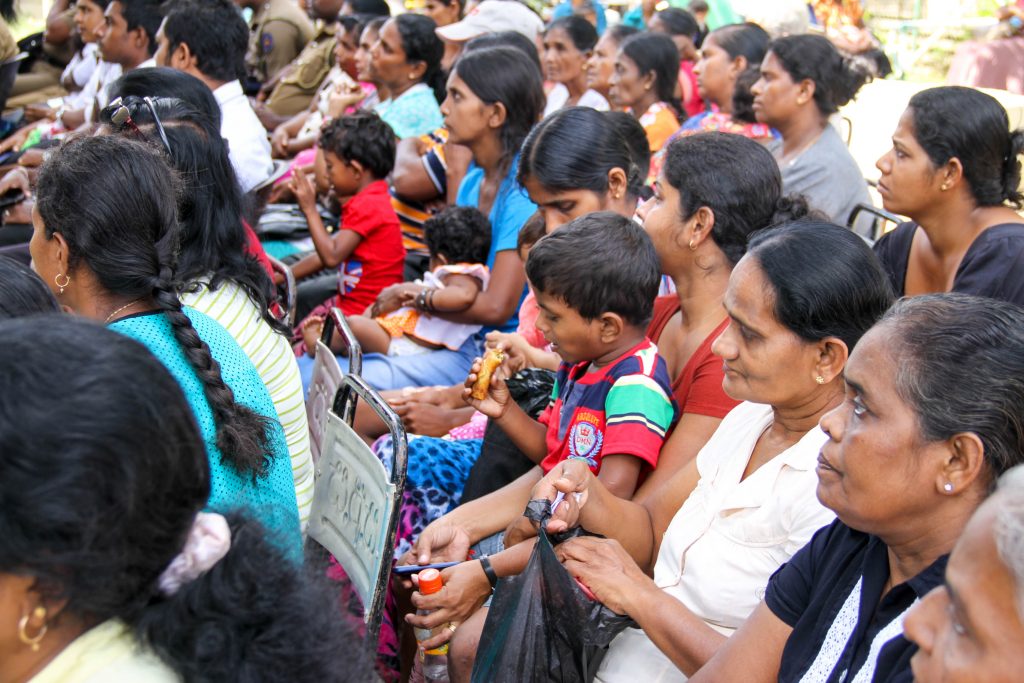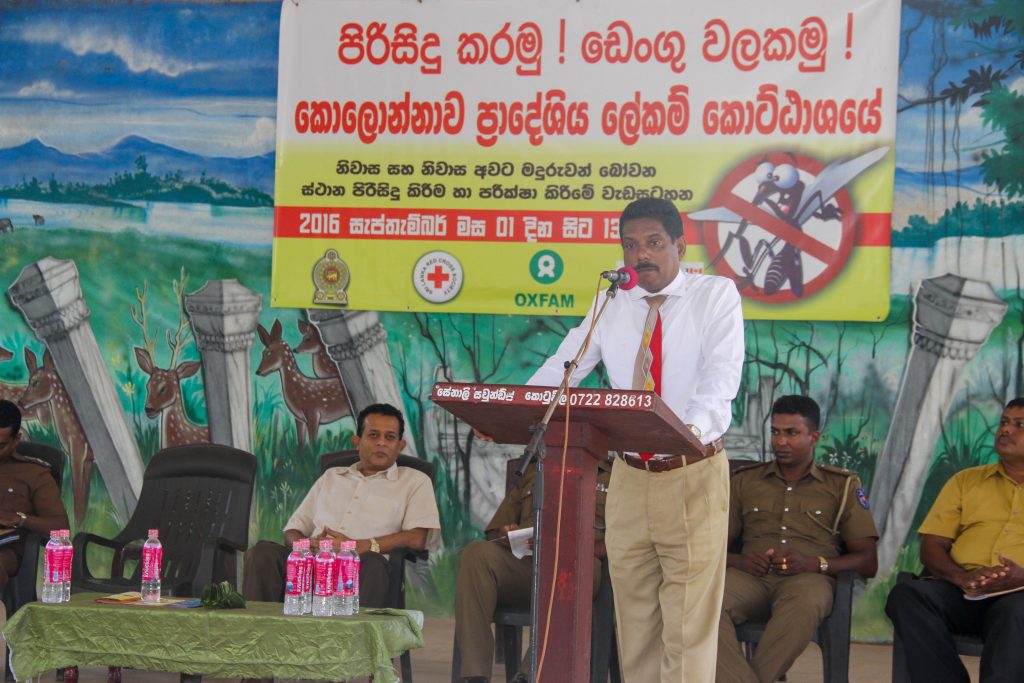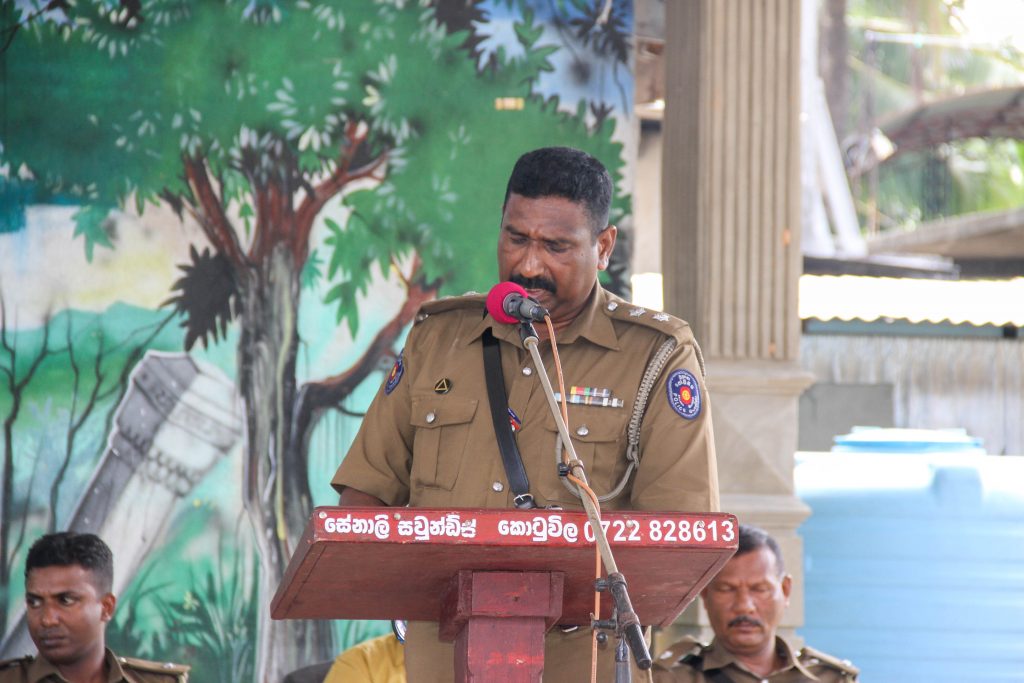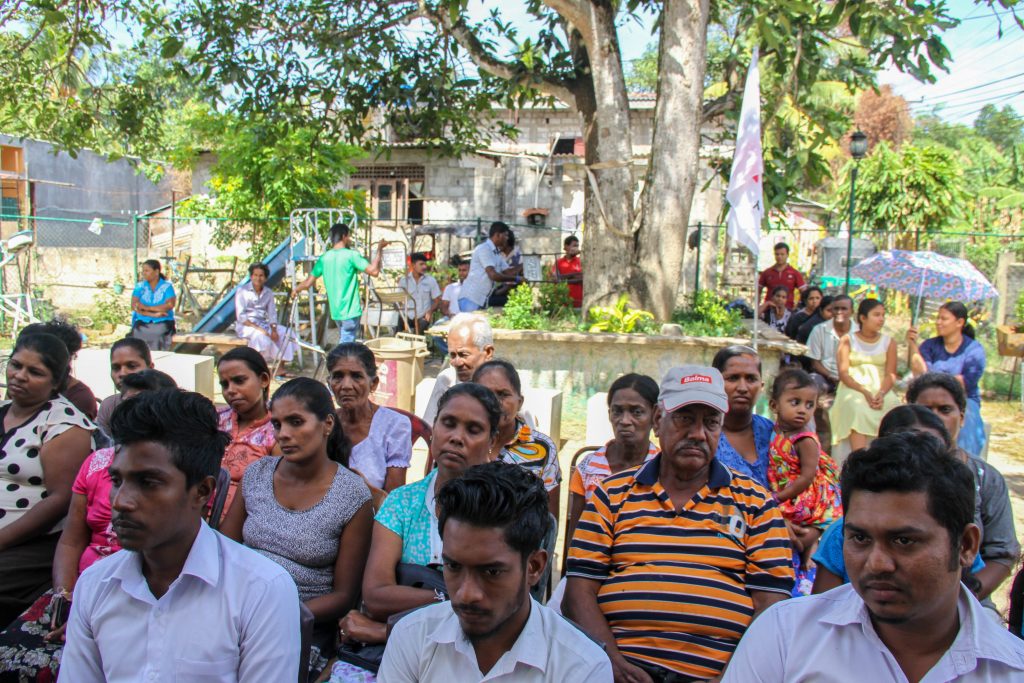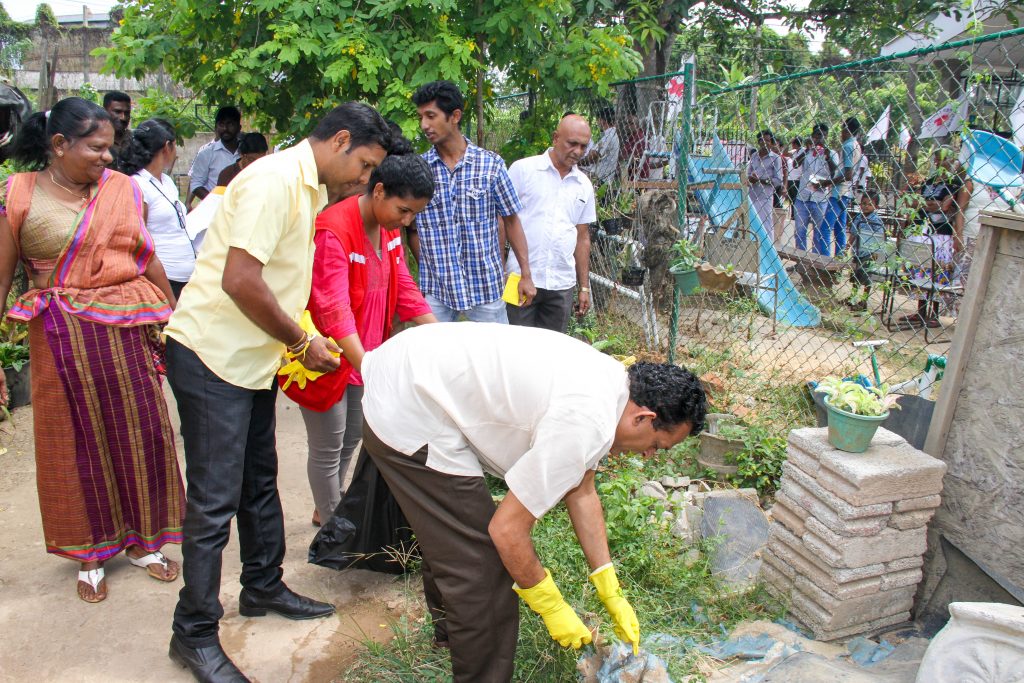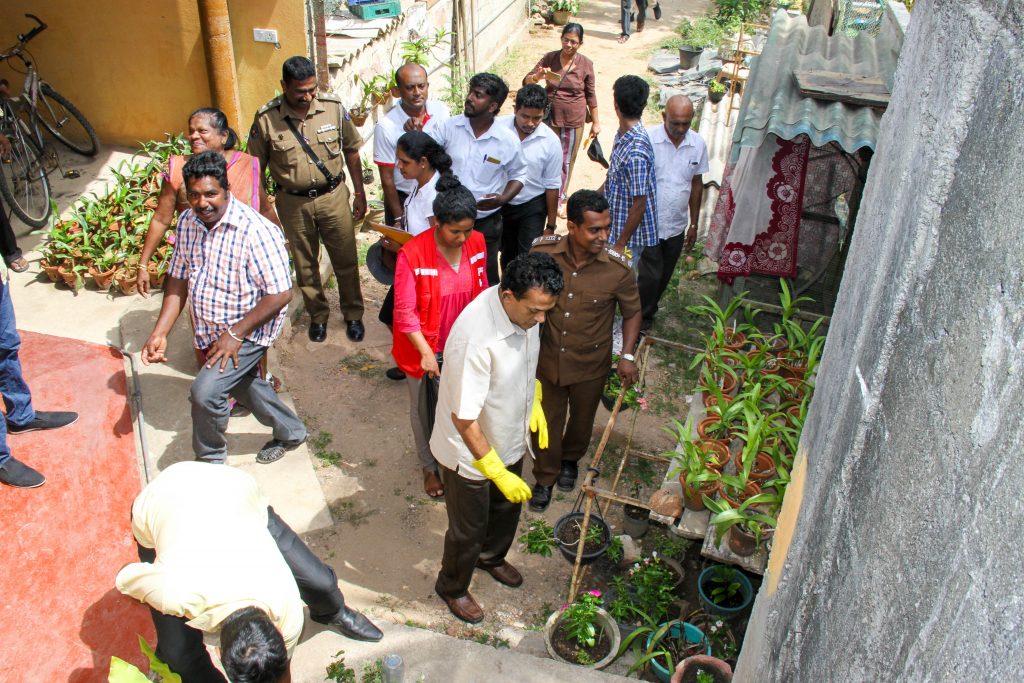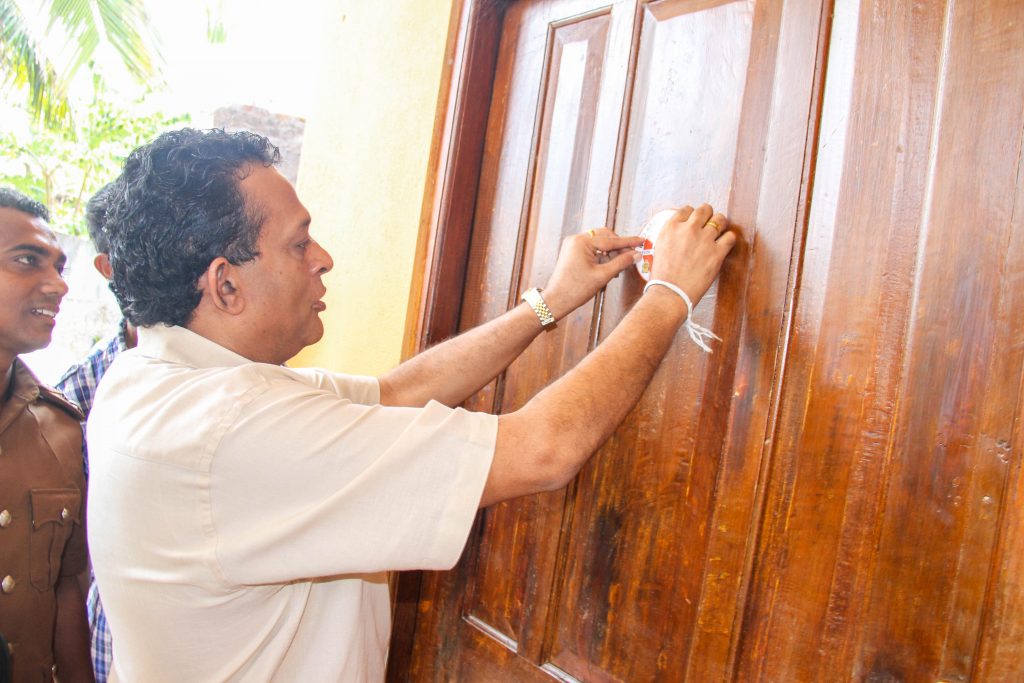Cleaning campaign to eradicate dengue continues among vulnerable communities in Colombo
02/09/2016 – Colombo, Sri Lanka: The Sri Lanka Red Cross Society’s initiative to eradicate dengue in association with Oxfam, The Health Ministry and Communities in Colombo continued with another cleaning campaign in Welewatta in Kolonnawa.
Welewatta is one of the at risk communities who faces the threat of dengue due to the fact that it gets flooded during monsoonal rains. The same occurred in the May 2016 flooding in Colombo.
The President of Sri Lanka Red Cross Jagath Abeysinghe along with the Deputy Director General of SLRCS Sudath Madugalle, members from the Government, the Branch Executive Officer of Colombo Kumari Kotalawala, and members of the community were present at the inauguration campaign.
This cleaning campaign will now continue for a 10 days at a stretch, flowing over to the neighboring villages in order to clean areas that are prone towards breeding of dengue.
President Abeysinghe engaged in the cleaning activities as well.
Once the cleaning of the area occurs and the Government Officials determine that the vicinity is now free of being a risk area towards dengue breeding, a sticker was pasted confirming the same. Meanwhile education materials were also distributed to people in the area in order to educate them on how they can keep their environment clean and free from dengue breeding grounds.
The number of dengue cases continue to rise in Sri Lanka. According to latest figures by the Health Ministry 8,000 additional cases of the mosquito borne viral disease, bringing the total year-to date to 37,603.
This is approximately double the cases (19,000) reported during the same period in 2015.
In addition, the dengue-related death toll now stands at 59.
The capital city of Colombo’s district has seen the most cases in the country with 11,952, followed by Gampaha (4737), Kandy (2968) and Kalutara (2611).
